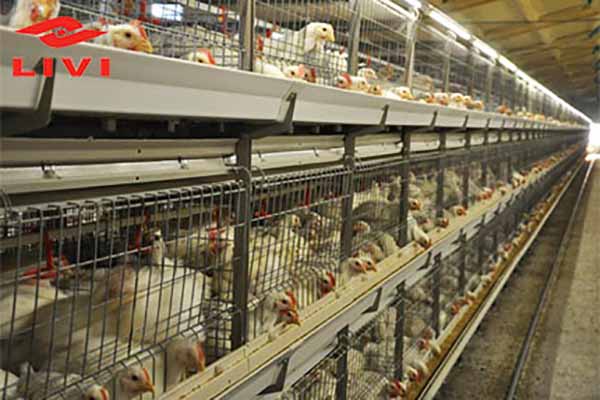Exotic Birds Farming in Kenya: A Comprehensive Guide
Time : 2025-05-13
Kenya, with its rich biodiversity and favorable climate, has become a hub for exotic bird farming. From vibrant parrots to majestic ostriches, the country offers a unique opportunity for entrepreneurs and bird enthusiasts to delve into the world of exotic avian farming. In this article, we’ll explore the basics of exotic bird farming in Kenya, including the types of birds, the farming process, and the market potential. So, let’s dive in and discover the fascinating world of exotic birds farming in Kenya!
The Types of Exotic Birds in Kenya
Kenya is home to a diverse range of exotic birds, each with its own unique characteristics and appeal. Here are some of the most popular exotic birds that you can consider farming:
- Parrots: Parrots are perhaps the most popular exotic birds in Kenya. They come in various colors and sizes, with some species like the African grey parrot being highly sought after for their intelligence and talking abilities.
- Ostriches: Ostriches are not only fascinating to watch but also a profitable venture. They are known for their fast growth rate and the valuable products they provide, such as feathers, leather, and eggs.
- Pigeons: Pigeons are a common sight in Kenya and can be bred for meat or as pets. They are relatively easy to raise and can be a good starting point for beginners in exotic bird farming.
- Macaws: These large, colorful parrots are highly sought after for their striking appearance and playful nature. They require a significant amount of space and care but can be a rewarding addition to your farm.
- Guineafowl: Guineafowl are known for their ability to protect crops from pests and are also a source of meat. They are relatively hardy and can thrive in various climates.
Starting Your Exotic Bird Farm in Kenya
Before you embark on your exotic bird farming journey, there are several key factors to consider:
Location and Climate
Choosing the right location for your farm is crucial. Kenya’s diverse climate means that different regions are suitable for different types of birds. For example, the cooler regions are ideal for parrots, while ostriches thrive in the warmer areas.
Legal Requirements
It’s essential to obtain the necessary permits and licenses to operate an exotic bird farm in Kenya. This includes bird import and export permits, environmental impact assessments, and health certificates for your birds.

Feeding and Housing
Proper feeding and housing are vital for the health and well-being of your birds. Each species has specific dietary needs, so it’s important to research and provide a balanced diet. Additionally, ensuring that your birds have adequate space, shelter, and protection from predators is crucial.
Health Management
Regular health check-ups and vaccinations are essential to prevent diseas e outbreaks. It’s also important to keep your birds away from ot
e outbreaks. It’s also important to keep your birds away from ot her birds or animals that may carry diseases.
her birds or animals that may carry diseases.
The Market Potential of Exotic Birds in Kenya
The demand for exotic birds in Kenya is on the rise, both domestically and internationally. Here are some of the key market opportunities:
- Domestic Market: Kenyans have a strong preference for exotic birds as pets. This market is driven by urbanization and the growing middle class, which are willing to invest in unique and high-quality pets.
- International Market: Kenya’s reputation for breeding high-quality exotic birds has made it a leading exporter to Europe, the Middle East, and North America.
- Product Diversification: Exotic bird farming can be combined with other agricultural activities, such as ostrich farming or beekeeping, to create a diversified and sustainable farm business.
Challenges and Tips for Success
While exotic bird farming in Kenya offers numerous opportunities, it also comes with its challenges. Here are some tips to help you succeed:
- Research Thoroughly: Before starting your farm, conduct thorough research on the species you plan to breed, their dietary needs, and the market demand.
- Networking: Build a strong network of suppliers, veterinarians, and other farmers to ensure you have the necessary support and resources.
- Continuous Learning: Stay updated with the latest trends and advancements in exotic bird farming to keep your business competitive.
- Quality over Quantity: Focus on breeding healthy, high-quality birds rather than maximizing the number of birds you can produce.
Conclusion
Exotic bird farming in Kenya is a dynamic and exciting industry with immense potential for growth. By following the right steps and being prepared for the challenges, you can turn your passion for exotic birds into a successful and profitable business. So, if you’re ready to embark on this fascinating journey, Kenya awaits you with open wings!











